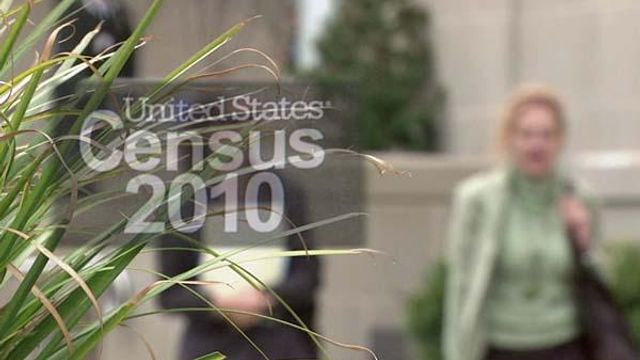Illegal immigrants urged to be counted
Tony Asion, executive director of El Pueblo, an local advocacy group for Latinos, said Latino participation is vital to this year's census count. The census does not ask about a person's immigration status and is only interested in counting residents.
Posted — UpdatedTony Asion, executive director of El Pueblo, an local advocacy group for Latinos, said Wednesday that he fears the problem will happen again. He said Hispanics living illegally in the state may not respond to census forms.
"People are a little apprehensive about getting involved in anything the government does,” he said. "They fear that if they participate in the census, the government is going to come out and come after them."
"The Hispanic population is very important to us," said Bill Baiocchi, who heads the Raleigh census office.
Baiocchi said Latino participation is vital to this year's count. In Wake County alone, the Hispanic population grew 200 percent from 2000 to 2008. Hispanics now account for approximately 8 percent of the county's population, Baiocchi said.
As part of its Latino outreach efforts, the Census Bureau for the first time is mailing out bilingual English-Spanish census forms to 13 million households.
Baiocchi said Hispanics should not worry about filling out the form if they are an illegal immigrant. The census does not ask about a person's immigration status and is only interested in counting residents.
"All we do is count people, we do not count citizenship,” Baiocchi explained.
Census forms, which began arriving Monday in mailboxes, carry high-stakes ramifications for the return of federal funding to municipalities.
"For every person that is counted, it is in terms of revenue, about $1,500 per person, per year,” Baiocchi said.
The census is also responsible for the apportionment of congressional seats. The 2000 census count gave North Carolina another seat in the U.S. House of Representatives.
"In order to affect change, the government needs to know how many Latinos there are,” Asion said.
The 10-question form is one of the shortest in the history of the census. It asks a person’s name, address, phone number, age, race and ethnicity, gender, living arrangements and home ownership. The information is kept strictly confidential under federal law, and the Census Bureau does not share data with other agencies, including law enforcement.
"Everybody who works for the census takes an oath, which says that if we get caught sharing that personal information with anyone unauthorized, we are susceptible to five years in jail and a $250,000 fine,” Baiocchi said.
Failure to respond to the census carries a fine of up to $5,000.
• Credits
Copyright 2024 by WRAL.com and the Associated Press. All rights reserved. This material may not be published, broadcast, rewritten or redistributed.





